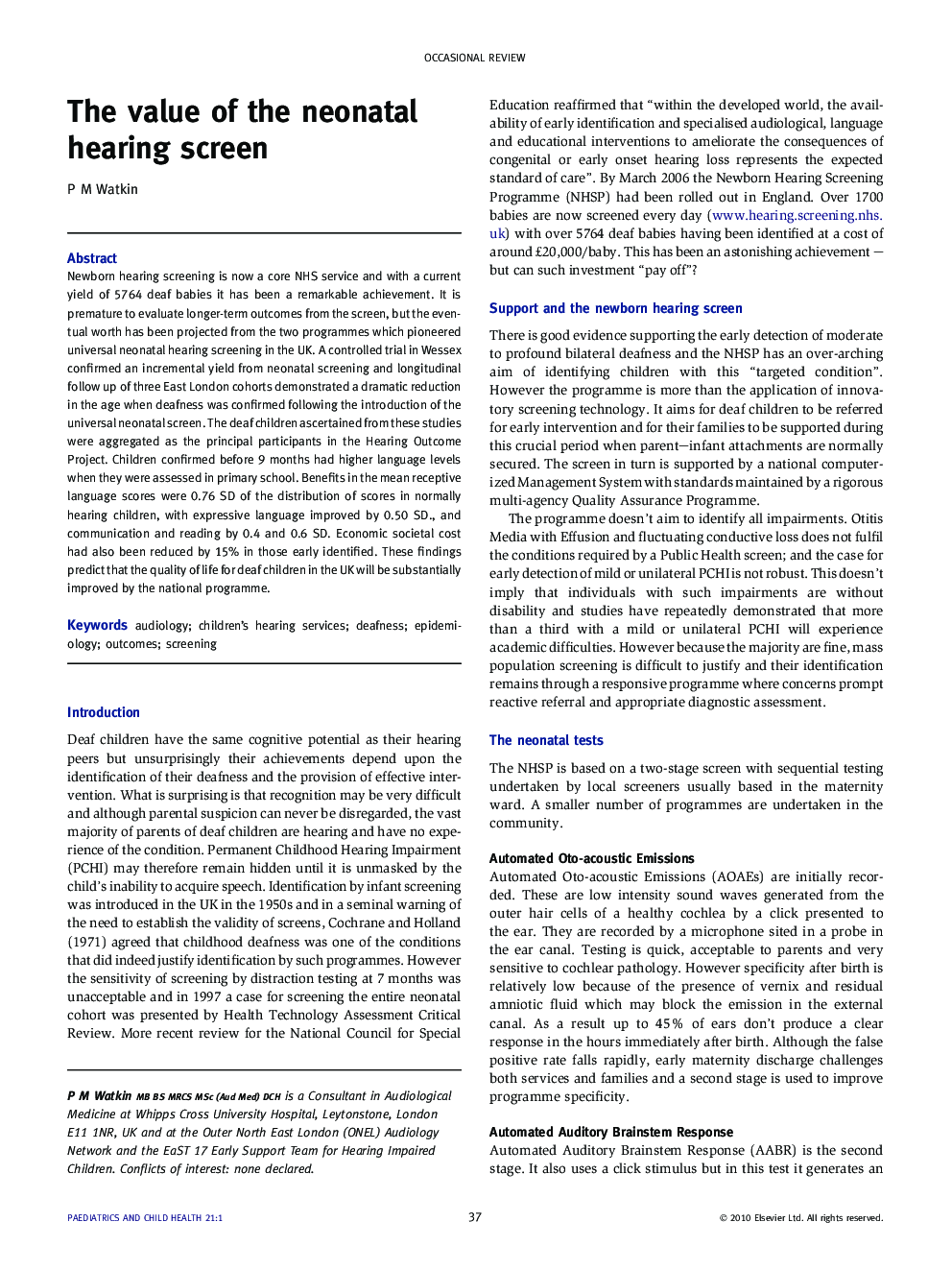| Article ID | Journal | Published Year | Pages | File Type |
|---|---|---|---|---|
| 4172602 | Paediatrics and Child Health | 2011 | 5 Pages |
Newborn hearing screening is now a core NHS service and with a current yield of 5764 deaf babies it has been a remarkable achievement. It is premature to evaluate longer-term outcomes from the screen, but the eventual worth has been projected from the two programmes which pioneered universal neonatal hearing screening in the UK. A controlled trial in Wessex confirmed an incremental yield from neonatal screening and longitudinal follow up of three East London cohorts demonstrated a dramatic reduction in the age when deafness was confirmed following the introduction of the universal neonatal screen. The deaf children ascertained from these studies were aggregated as the principal participants in the Hearing Outcome Project. Children confirmed before 9 months had higher language levels when they were assessed in primary school. Benefits in the mean receptive language scores were 0.76 SD of the distribution of scores in normally hearing children, with expressive language improved by 0.50 SD., and communication and reading by 0.4 and 0.6 SD. Economic societal cost had also been reduced by 15% in those early identified. These findings predict that the quality of life for deaf children in the UK will be substantially improved by the national programme.
